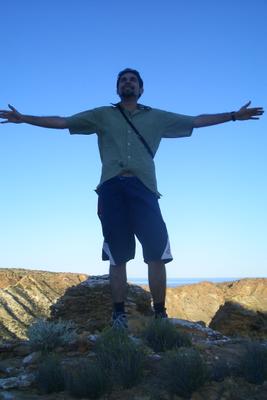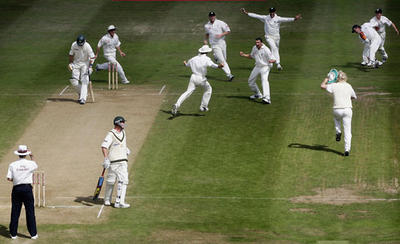Today marks the 60th anniversary of Japan's surrender to Allied forces in the Pacific. Thus ended Japan's brief flirtation with direct, imperial hegemony over the Pacific region. An 'experiment' that resulted in the deaths of tens of millions, likely a far greater number than died in Europe. In Australia, the Prime Minister has wasted no time displaying his war time credentials, making this comparison between the defeat of Japan and the defeat of terrorism:
We're dealing with a borderless war where the enemy is not an army and therefore many of the conventional understandings about surrender and hostilities and who's a combatant ... all of those things are different now," Mr Howard said.
It's very different and that makes it harder in some respects, it's sporadic and you'll never quite know when its [sic] over.
Endless war for a peace that will never quite be reached.
In light of that, I thought I might reflect on some of the lesser known aspects of the Pacific War and the period immediately proceeding it. Bear in mind the difficulty of encapsulating a complex period of human history into a blog entry!
Japan’s treatment of prisoners of war is well documented in Western nations, and with good reason. John Wyatt, a British POW who was taken to Japan to work as a slave factory worker, described POWs’ living conditions thusly:
We had to lay side-by-side, head-to-toe, plus all your bits of sacking and mess tins. We were squashed like ants; no room to turn or stretch; stinking feet in your face; the smell of wet clothing drying on bodies; urine from beri-beri patients; and dysentery was still rife. The Benjo (Jap word for lavatory) was outside. In the freezing temperatures men with dysentery had to trample over you to get to the ladder; some couldn't make it, leaving excreta everywhere. Eventually, all dysentery cases were put on the lower platform. To all that was added the misery of bed bugs and lice. After a hard day's work, you could get no rest or sleep.
An aspect of the POW situation during the Pacific War rarely mentioned is the fact that the largest number of casualties were amongst Indian soldiers fighting for Great Britain. According to Dr Peter Stanley, an historian with the Australian War Memorial, about six in ten of the Indian prisoners of war died, a death rate almost double that of European prisoners.
Over 60,000 Indian troops were captured by the Japanese. Of this number, 40,000 chose to fight with the pro-Japanese Indian National Army. The INA was led by Subhas Bose, a militant nationalist leader who traveled the Third Reich recruiting captured Indian soldiers to his nationalist cause.* In India Bose is considered one of the great linchpins of the struggle for independence, and not without some merit.
During the War, Japanese scientists and doctors conducted a range of experiments on live human subjects. This included the use of ‘germ bombs’ on Chinese villages to test their viability as a weapon of war. But that was not all. In 1995, the New York Times published an article by journalist Nicholas Kristof in which he noted that Japanese doctors performed vivisections without anesthetic and even a three-day old baby was used for experimentation.
British and American intelligence were made aware of these experiments by their Chinese allies well before the war ended. Once the United States had defeated Japan, its response was to protect the key Japanese scientists and doctors from prosecution for war crimes in exchange for their data and expertise gleaned from the experiments undertaken. Such are the ways of powerful states in a cynical world.
Until recently, the Chinese Government’s response was to bury the story, for fear of damaging relations with Japan. Only more recently, as China has grown in geopolitical stature, has official Chinese resentment of Japan’s war crimes grown more overt. And, of course, there is the none-too-small matter of collective amnesia on the part of the Japanese with regards to Imperial Japan’s war crimes.
None of this commentary should be considered academic. It is neither a slight matter, nor an interesting morsel of trivia, to note that the consequences of many of the crimes that ended 60 years ago today have yet to be addressed.
* It should be noted that, although Bose was an avowed fascist (in the non-pejorative sense), his interest in Hitler was likely born principally out of opportunism not ideology, much in the same way asthe Mufti of Jerusalem during the same period. The enemy of my enemy is my friend was, no doubt, the flawed reasoning.




























